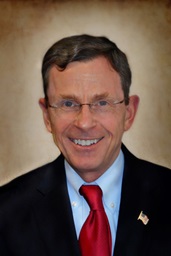Thomas Kemper, general secretary of the United Methodist General Board of Global Ministries, spoke to the transition from “memory” to “vision” in the church’s mission in the 21stcentury at a Friends of Mission Luncheon held on Sunday, April 29, during the church’s 2012 General Conference in Tampa.
Held at Palma Ceia United Methodist Church in South Tampa, the lunch was followed in the afternoon by the commissioning of 23 new missionaries and 17 deaconesses and home missioners.
Excerpts from Kemper’s remarks follow:
InFOCUS, one of the booklets published by Abingdon Press as part of the preparation for this conference, Professor Lovett Weems observes that our church is in a time of transition between “memory” and “vision.” It is also true to say that our United Methodist mission theology and practice are also in transition, and mission theology and practice are always related. I am convinced that we have significantly moved from “memory”—the colonial/empire model of Edinburgh 1910—to an emerging vision where the universal Gospel is held and shared in diverse cultural forms. To support my thesis, I offer these five propositions:
- Equality.We are here at this large, if short, mission roundtable at Palma Ceia as equals in grace and faith, equals in the call to glorify God, and equally committed to serve all of God’s people. Equality is a hallmark of the new series of regional and topical mission roundtables we have launched at Global Ministries. The principle is no longer that of whoever has the most money “calls the shots.” We are leaving that era in favor of one of mission trust and collaboration.
- Everywhere-to-Everywhere Missionaries.We are making significant strides in moving away from the colonial model in which missionaries were white Europeans and Americans. Today, missionaries are from everywhere to everywhere, as was famously said at the 2010 Edinburgh Missionary Conference. Today, we are commissioning Global Missionaries from 11 countries. Almost 50 percent of our international missionaries are now from outside the United States.
- Partnerships.We are forging genuine partnerships that avoid replication of ministries and taking our cues from the priorities of indigenous Christians. The importance of listening to the people of any particular place was dramatic in the Act of Repentance we experienced on Friday night at the convention center. We have so often, even as the church, ignored the spiritual capacity and wisdom of people outside of Western culture.
- Strengthening Churches. We are developing missionaries and mission volunteers in ways that complement and enhance partner efforts, except in situations of genuine pioneer mission, such as, recently, in Southeast Asia, Mongolia, and several regions of Africa. Our scholarships and leadership development grants are no longer just for individual scholars but are designed to complement and undergird church priorities, such as the current four focus areas. Several of the missionaries we will commission today received parts of their education through World Communion or other Global Ministries study grants.
- Intra-Methodist and ecumenical work. We are promoting intra-Methodist and ecumenical efforts in mission and ministry. Two emerging examples are new offices in Hong Kong and the Holy Land. The first gives testimony to our commitment to mission in China and other parts of Asia, and the office is being organized in close collaboration with our partner, the Methodist Church of Hong Kong, represented at this General Conference by the Rev. Tin Yau Yuen and Stuart Chen. The Jerusalem office is a joint project of Global Ministries, the British Methodist Church, and the World Methodist Council. It will also cooperate closely with the World Council of Churches’ Jerusalem Center. One major objective of this office is to help Methodist pilgrims to the Holy Land experience the realities and challenges of Palestinian Christians, whose numbers are being reduced by political and economic factors. Our pilgrims need to experience “living stones”— faithful Christians in a troubled land, as well as the archeologists’ stones.
Like what you're reading? Support the ministry of UM News! Your support ensures the latest denominational news, dynamic stories and informative articles will continue to connect our global community. Make a tax-deductible donation at ResourceUMC.org/GiveUMCom.



